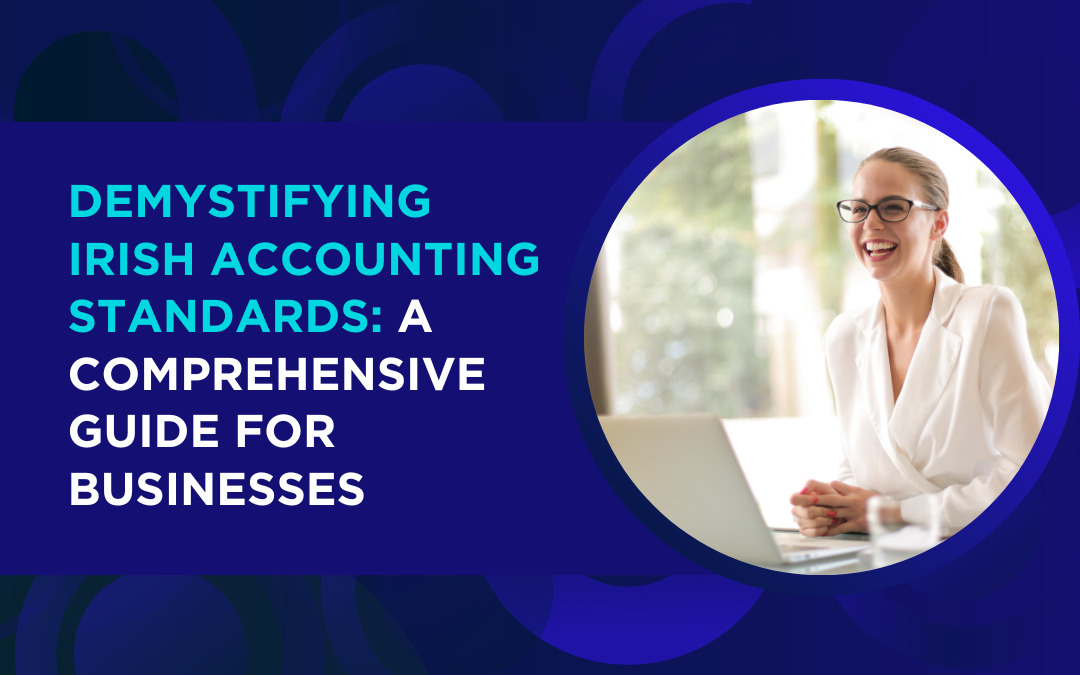
Keep reading to learn the Irish Accounting Standards’ fundamental ideas and more about the accounting principles in detail. Further, get an in-depth understanding of Irish Accounting Standards and the associated challenges to better deal with compliance. Meanwhile, this information will help guarantee compliance and financial transparency to run a successful business in Ireland.
Fundamentals of Irish Accounting Standards
The financial statements in Ireland must adhere to a specific set of regulations typically known as Irish Accounting Standards. To successfully demonstrate the company’s financial results to stakeholders, including investors, regulatory authorities, etc., firms must adhere to these guidelines to provide uniformity and transparency in reporting financial information.
Let’s look at the regulatory bodies for the Irish Accounting Standards:
- ASAI, commonly known as the Accounting Standards Authority of Ireland, is an authoritative legislative authority which issues accounting norms to businesses in Ireland based on the International Financial Reporting Standards.
- The Company Registration Office or CRO is an Irish government agency responsible for business registration and regulation. The primary function of a CRO is to ensure that the company’s financial statements are in full accordance with the accounting principles of Ireland.
Why is it Important for Businesses to Adhere to Irish Accounting Standards?
The following are some of the essential aspects of businesses adhering to the Irish Accounting Standards:
- Preparing financial statements conforming to Irish accounting standards is essential. In non-compliance, fines, legal action, and a hit to its credibility are possible.
- Compliance with accounting standards increases the trustworthiness of the company among its shareholders by offering accurate financial information.
- The financial statements can be reliably compared because of their uniformity mandated by Irish Accounting Standards. This consistency level is crucial to making educated decisions and evaluating a business’s financial performance.
- Compliance with accounting standards improves a company’s chances of securing financing and investing from financial institutions. This compliance is vital in understanding the company’s financial health and investment possibilities.
- Meeting the obligations of government entities, such as taxing authorities and governing bodies, often necessitates strict adherence to accounting standards. It is more likely to reduce audits, fines, and legal issues.
Irish Accounting Standards: The Significant Concern

Numerous accounting criteria govern financial reporting in Ireland, and let’s take a closer look at the essential aspects:
Financial Reporting Standards:
The Accounting Standards Authority of Ireland issues a set of accounting standards generally known as Financial Reporting Standards or FRS. The financial statements must be prepared based on this specific guideline to foster uniformity and transparency. Financial reporting typically consists of assets, liabilities, expenses, income, and much more, where FRS is primarily responsible for providing the structure to create financial statements.
Generally Accepted Accounting Practices:
Generally Accepted Accounting Practices or GAAP usually consists of the most accepted accounting standards based on the jurisdiction where companies in Ireland must prepare financial statements complying with GAAP. It incorporates the Ireland company regulations and FRS, which helps create accurate and consistent financial reports with industry standards.
Companies Act:
Financial reports must comply with regulations under the Companies Act in Ireland, including annual financial statements, directors’ reports, etc. The Companies Act outlines the disclosure obligations and rules for the illustration of financial information. In contrast, in the case of non-compliance, it leads to fines and legal repercussions. These regulations substantially affect reporting finances since they establish a consistent framework for financial statements.
Organising Ideas and Concepts of Irish Accounting Standards
To better understand Irish Accounting Standards, it is essential to have deep knowledge of these fundamental ideas. Here are some of the key principles involved in the Irish Accounting Standards are as follows:
Accounting on an Accrual Basics:
The transactions and events are recorded on the accrual basis of accounting when they occur rather than waiting for cash to be collected. This principle states that revenue is up to date as soon as earnings and records expenses as quickly as spent. Financial statements prepared using the accrual basis are credible since they reveal the actual economic effects of business transactions.
Going Concern Assumption:
When there is proof to the contrary, businesses are assumed to be able to maintain operations in the future under the going concern assumption. The ability to pay debts, generate income, and keep running the business as usual is central to this tenet. It enables companies to communicate their financial statements meaningfully to the readers based on the premise that the company will continue to function.
Quantifying Fair Value:
Assets and debts are valued at their current market prices by the principle of fair value. Fair value is the price at which you can sell an asset or transfer the liability between willing parties in a transparent and competitive market. It ensures that the value of assets and liabilities are accurately reflected in financial statements to see the whole picture and determine whether a company is financially stable.
Common Difficulties Businesses Face in Complying with Irish Accounting Standards
Irish Accounting Standards can be challenging to implement, but it is simple with a better understanding of these standards. Moreover, to guarantee reliable and timely financial reporting, it is crucial to handle these challenges successfully. Let’s look at the typical business challenges in compliance:
- The difficulty in understanding and implementing accounting standards.
- Adapting to emerging accounting regulations.
- Keeping up with the ever-evolving financial reporting regulations and accounting standards landscape.
- Maintaining accurate records.
- Setting up procedures for internal control and auditing.
- Employee training to stay up to date on the latest accounting standards.
By addressing these difficulties, businesses can improve their capability to comply with Irish Accounting Standards. Further, consult with accountants conversant with Irish Accounting Standards like Outbooks for expert advice and assistance. Get valuable aid in understanding and fulfilling accounting regulations in Ireland.
Sum Up
Always remember that learning more about accounting principles and staying updated with regulations is the key to successfully complying with the Irish Accounting Standards. Financial transparency, stakeholder trust, and educated financial decision-making can all be enhanced when organisations are familiar with and adhere to these standards.
Do you want to maintain a competitive edge by emphasising adherence to Irish Accounting Standards? Contact our expert team to deal with your financial reporting difficulties successfully!










